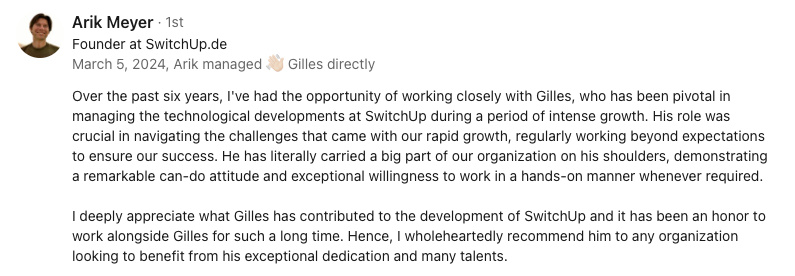Abstract:
Navigating the complexities of the startup world often involves managing limited resources such as tight budgets, small teams, and restricted access to advanced tools, particularly in the realm of data mining. Startups must creatively convert these constraints into opportunities by aligning their data mining efforts with business goals to drive growth. Financial limitations necessitate the use of open-source or cost-effective data mining tools like RapidMiner, KNIME, and Orange, which, while affordable, can require more expertise and training. The small team dynamics in startups foster a collaborative culture where cross-functional roles are crucial, allowing team members to handle multiple tasks and leverage external part-time experts for specialized insights. Cloud solutions present scalability and flexibility through pay-as-you-go models, optimizing financial resources. Startups benefit from incremental implementation strategies, starting with small projects and expanding as resources grow, which minimizes risks and adapts to real-time feedback. Successful startups showcase strategic planning and tool selection, aligning data mining with business strategies to unearth hidden patterns and new market opportunities. By avoiding common pitfalls such as overinvesting in misaligned tools and maintaining data quality and security, startups can transform limitations into innovative success stories.
Navigating the busy world of startups can feel overwhelming, especially when you're working with limited resources. Entrepreneurs often juggle many tasks while keeping an eye on their finances. Tight budgets, small teams, and limited access to advanced tools are some of the challenges faced in this exciting yet tough environment. But with creative thinking, these obstacles can be turned into opportunities, particularly in data mining. Let's explore how startups can manage these constraints to align with their business goals and drive growth.
Understanding Resource Constraints in Startups
In the fast-paced world of startups, dealing with limited resources is a common hurdle. Whether it's tight budgets, small teams, or restricted access to advanced tools, startups must tackle these issues while keeping their data mining efforts aligned with their business goals. Industries like SaaS, FinTech, AI/ML, and HealthTech often face these challenges, requiring innovative solutions to thrive.
Challenges of Limited Budgets
Startups often work with tight budgets, which can limit their ability to invest in sophisticated data mining tools. This financial pressure pushes them to be inventive in maximizing their data mining capabilities. From open-source tools to strategic partnerships, there are cost-effective solutions that can help startups meet their business goals.
Prioritizing data mining projects that align with business objectives is crucial when resources are tight. For instance, using frameworks like CRISP-DM or Lean Analytics helps startups use their resources efficiently, providing a clear path to achieving specific goals.
Impact of Small Teams
Startups typically have small teams, meaning everyone has to take on multiple roles, often covering different aspects of data mining. This setup fosters a culture of collaboration and creativity, where everyone works together to achieve the project's success.
Efficiency and teamwork are key for small teams involved in data mining. Clear communication and shared goals, often achieved through regular brainstorming and collaborative tools, are essential. When small teams unite with a common purpose, they can thrive in the competitive startup world.
Restricted Access to Advanced Tools
Startups often can't afford high-end data mining tools, so they turn to affordable or open-source alternatives. While these tools are cost-effective, they may require more expertise and training. Tools like RapidMiner or KNIME offer great features but come with a learning curve.
Open-source tools provide affordability but demand expertise that might be lacking within the team. Balancing the cost savings with the need for skilled personnel is a challenge. By investing in training or partnering with experts, startups can make the most of these tools.
Exploring Cost-effective Tools and Technologies for Startups
When budgets are tight, choosing the right data mining tools is crucial. Startups often turn to cost-effective solutions that meet their needs without compromising on quality.
Affordable Data Mining Tools
- RapidMiner: Offers a comprehensive suite for data preparation and predictive analytics through an intuitive visual workflow. However, it needs careful management with large datasets.
- KNIME Analytics Platform: Supports extensive data processing with a modular approach. It’s flexible but might be challenging for new users.
- WEKA: Great for educational and small-scale projects, especially for classification and clustering tasks.
- Orange: Combines ease of use with interactive visualization, ideal for beginners but best for smaller datasets.
- Apache Mahout: Suited for scalable machine learning applications, requiring a strong programming background.
Leveraging Cloud Solutions
Cloud platforms like AWS, Microsoft Azure, and Google Cloud offer flexibility and scalability. These platforms are secure and allow startups to expand operations as needed.
The pay-as-you-go model is particularly attractive, letting startups manage their expenses effectively by only paying for what they use. This strategy aligns costs with usage and optimizes financial resources.
Strategies for Building a Lean Data Team
Creating an effective data team is vital for startups with limited resources. Cross-functional roles and part-time experts maximize team efficiency.
Cross-functional Roles
Startup team members often juggle various roles like data analysis and engineering. This versatility is an advantage, allowing them to switch tasks and respond swiftly to challenges.
Cross-functional roles offer flexibility, tackling data challenges while aligning with business goals. Bringing in part-time experts provides targeted insights without the costs of full-time hires.
Leveraging Part-time Experts
Hiring part-time experts or consultants helps fill expertise gaps without committing to full-time salaries. Consultants provide high-caliber knowledge, guiding data strategies and helping overcome technical challenges. During my time in Beijing, I managed multicultural teams, which taught me the value of diverse perspectives in tackling complex data challenges.
Scalable Data Mining Approaches for Startups
Scalable data mining approaches are essential for startups aiming for sustainable growth. Incremental strategies allow startups to manage resources effectively.
Incremental Implementation
Starting with small projects and expanding as resources grow is a smart approach. It minimizes risks and allows for adjustments based on real-time feedback. The excitement of creating disruptive technology is palpable when startups see their data-driven decisions leading to tangible growth.
Iterative development helps startups adapt to changing data needs, allowing continuous improvement and optimization.
Case Studies of Successful Startups
Real-world examples show how strategic planning and tool selection can lead to growth and innovation. For instance, a SaaS startup leveraged data mining to optimize customer engagement, while a HealthTech company used data insights to enhance patient care. Successful startups align data mining with business strategies to harness data for further growth.
Integrating Data Mining with Business Strategy
Aligning data mining with business strategy ensures impactful and actionable decisions, driving growth and innovation.
Aligning with Business Goals
Focusing on data that supports business goals reveals insights that transform into actionable strategies. Aligning data mining efforts with strategic objectives optimizes resources and fosters growth.
Uncovering New Opportunities
Data mining reveals hidden patterns and trends, leading to new market opportunities. Startups can innovate offerings and stay ahead in the competition by analyzing existing data.
Overcoming Common Pitfalls
Startups must avoid overinvesting in tools that don't align with their needs. Poor data quality can skew analysis, so maintaining high standards in data integrity is crucial.
Avoiding Common Mistakes
Developing a clear data strategy and regularly evaluating tool effectiveness prevents common pitfalls. Aligning these with business goals optimizes data mining efforts.
Maintaining Data Quality and Security
Implementing robust data governance frameworks and training employees on data security best practices ensure high-quality data without high costs. Open-source tools enhance data quality and security while keeping expenses manageable.
Startups face challenges, but with creative strategies, they can thrive. By prioritizing data mining aligned with business goals, using affordable tools, and fostering adaptable teams, startups can turn limitations into opportunities.














